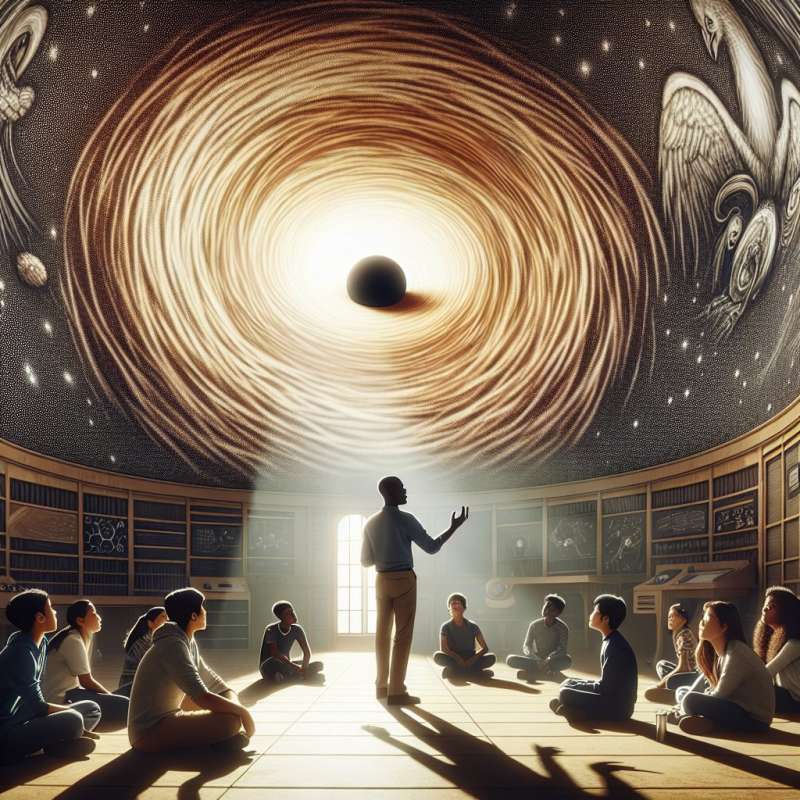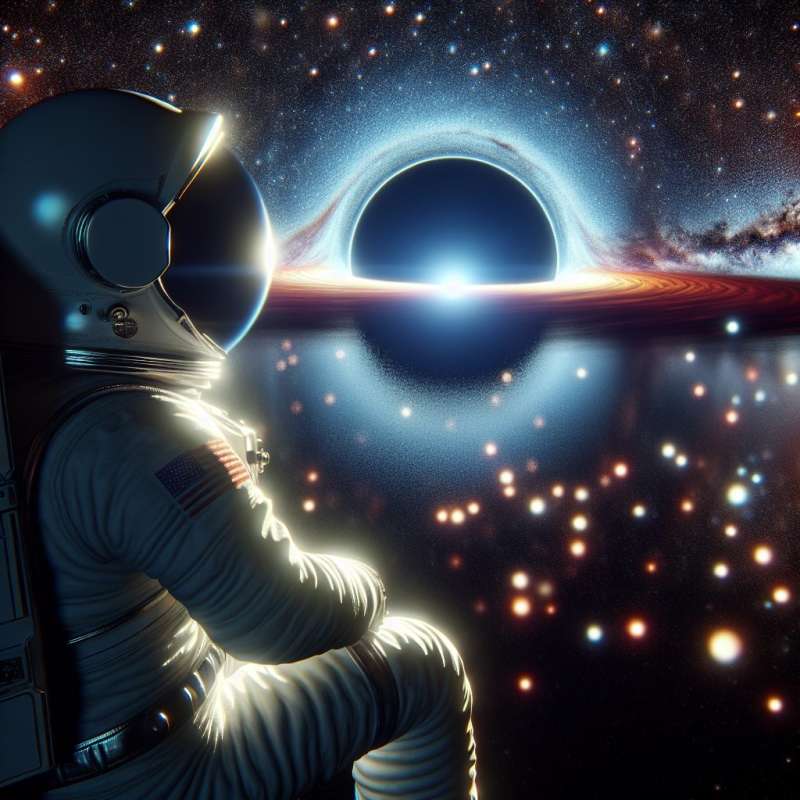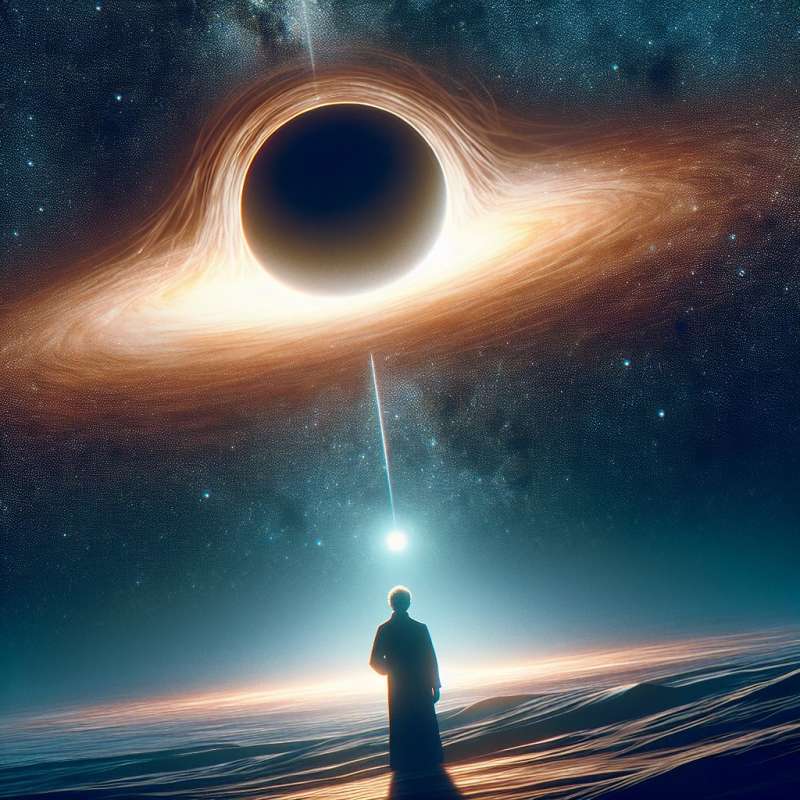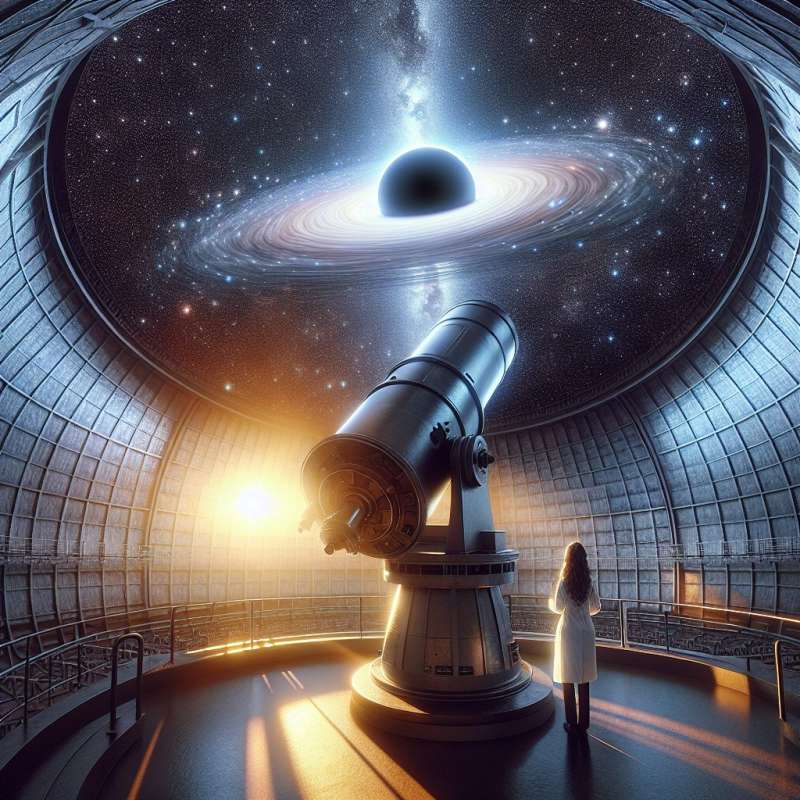
Black Holes Defined
Black holes are cosmic entities with gravitational pulls so strong that nothing, not even light, can escape. They form from the remnants of massive stars after a supernova explosion.
Sizes and Types
Black holes vary in size. Stellar black holes form from collapsing stars and are up to 20 times the sun's mass. Supermassive black holes, millions to billions times the sun's mass, sit in galaxy centers.
Event Horizon Mystery
The event horizon is the point of no return around a black hole. Beyond this boundary, the escape velocity exceeds the speed of light, rendering escape impossible for anything trapped inside.
Singularity Enigma
At a black hole's center lies the singularity, a point of infinite density where space-time curves infinitely and the laws of physics as we know them cease to apply.
Hawking Radiation
Stephen Hawking proposed that black holes emit radiation due to quantum effects near the event horizon. This 'Hawking Radiation' implies black holes can slowly evaporate over eons.
Galactic Nuclei Giants
Every large galaxy harbors a supermassive black hole at its nucleus. Our Milky Way's core is anchored by Sagittarius A*, a gentle giant four million times the sun's mass.
Black Holes as Time Machines
Theoretically, the intense gravity of black holes could warp space-time to such an extent that they might be used as portals for time travel, challenging our understanding of causality and the universe.
What defines a black hole's strength?
Its size only
Gravitational pull intensity
Its location in galaxies
Company